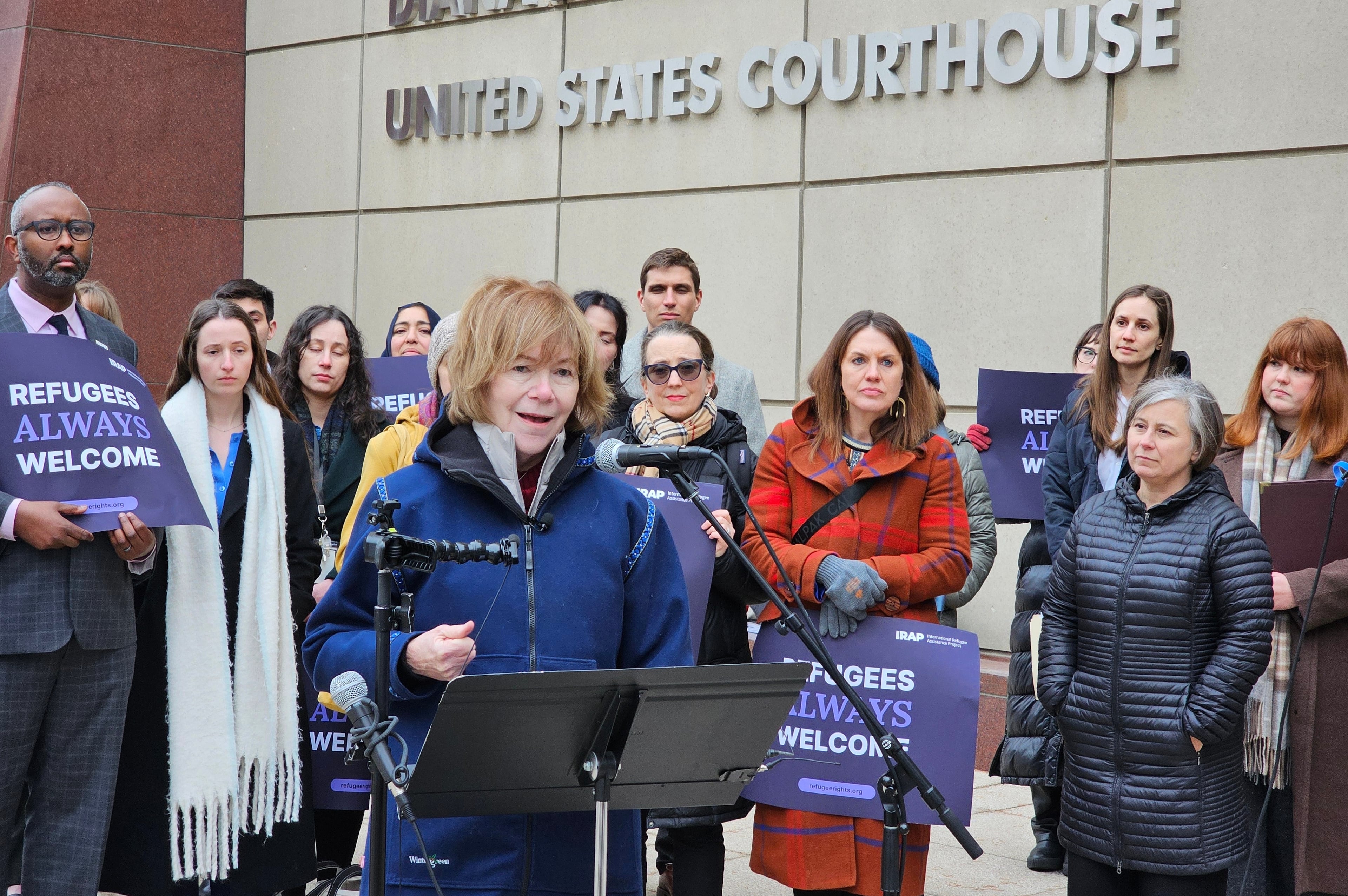Detained by ICE, Gwinnett barber with amputated legs petitions for release

The Trump administration’s ongoing immigration crackdown has targeted both recent border crossers and people who have been living in the U.S. for decades. Few cases in the latter camp have captured the national imagination more than that of Rodney Taylor, a double amputee and Gwinnett County barber who immigrated from Liberia as a toddler, more than 40 years ago.
Taylor became engaged just days before Immigration and Customs Enforcement agents surrounded his home and arrested him Jan. 15.
This week, Taylor’s legal team filed a brief in Georgia federal court arguing that the barber is being detained unlawfully. It’s an attempt to put an end to Taylor’s time in immigration custody, which recently surpassed the eight-month mark. Taylor’s attorneys and family say detention has brought setbacks to his physical health, raising questions about ICE’s ability to safely detain people with disabilities.
Despite Taylor’s “significant medical needs,” ICE has “steadfastly refused to release him from custody,” Helen Parsonage, one of Taylor’s attorneys, said in a statement.
Born with severe disabilities to his legs and arms, Taylor was brought from Liberia to the U.S. by his mother at age 2, so he could receive treatment. The disabilities eventually led to his left leg being amputated above the knee and his right leg below the knee.
By the time of his arrest, Taylor’s medical visa had long since expired, though he had a work permit. He also had a pending application for a green card through his adult son, who is a U.S. citizen.
“I feel like an American. This is all I knew,” Taylor told CNN earlier this year from ICE custody. “Going back to Liberia is like going back to a foreign country.”
ICE has kept Taylor in detention because of a felony burglary conviction that he pleaded guilty to as a teenager, and from which he was pardoned by the state of Georgia in 2010. He is being held at ICE’s Stewart Detention Center, located in the remote South Georgia town of Lumpkin.
At Stewart, Taylor has been unable to fully charge the prosthetics that help him walk, Parsonage said.
According to Parsonage, Taylor has also not received the appropriate medicine to prevent chafing at one of the amputation areas. Taylor’s inability to move around the detention enter has made him prone to missing meals and forgoing routine self-care such as showering, she added.
“His health is at risk every day he remains in detention,” Mildred Pierre, Taylor’s fiancee, said in a statement. “I am pleading for his release so he can return home to the community that needs him, to the loved ones who depend on him, and to the life of service and compassion he has always led. We deserve the chance to build the future we planned together, free from the fear and separation that has shattered our lives.”
ICE did not respond to a request for comment.
A spokesperson for CoreCivic, the company that operates Stewart, told the Guardian that staff has been accommodating Taylor’s needs.
Release from ICE custody more elusive under Trump
Even as surging arrests have stretched capacity at ICE detention facilities nationwide, including Stewart, it has become more difficult for immigration attorneys to secure clients’ release while their deportation cases play out in immigration court. That’s because access to immigration bonds has been sharply restricted by the Trump administration.
For a chance at release, immigrants and their supporters are turning to habeas corpus petitions, formal demands to free people from custody while it is determined whether their detention is legal.
Taylor’s habeas petition was filed this week in the U.S. District Court for the Middle District of Georgia.

Attorneys for journalist Mario Guevara, another high-profile Georgia ICE detainee, also filed a habeas petition on his behalf in August.
Magistrate Judge Amelia Helmick gave the Stewart Detention Center’s warden 21 days to respond to Taylor’s petition for habeas relief.
“Rodney Taylor should be free and in the loving embrace of his family and community. He should never have been detained, and he should not be facing deportation,” said Nana Gyamfi, executive director of the Black Alliance for Immigrant Justice. “His treatment as a Black, disabled immigrant has been unconscionable and sadly reflects the cruelty that Black immigrants are subjected to in this violent, harsh immigration enforcement system.”
Editor’s note: This story has been updated to clarify Taylor’s medical visa had expired when he was detained.



